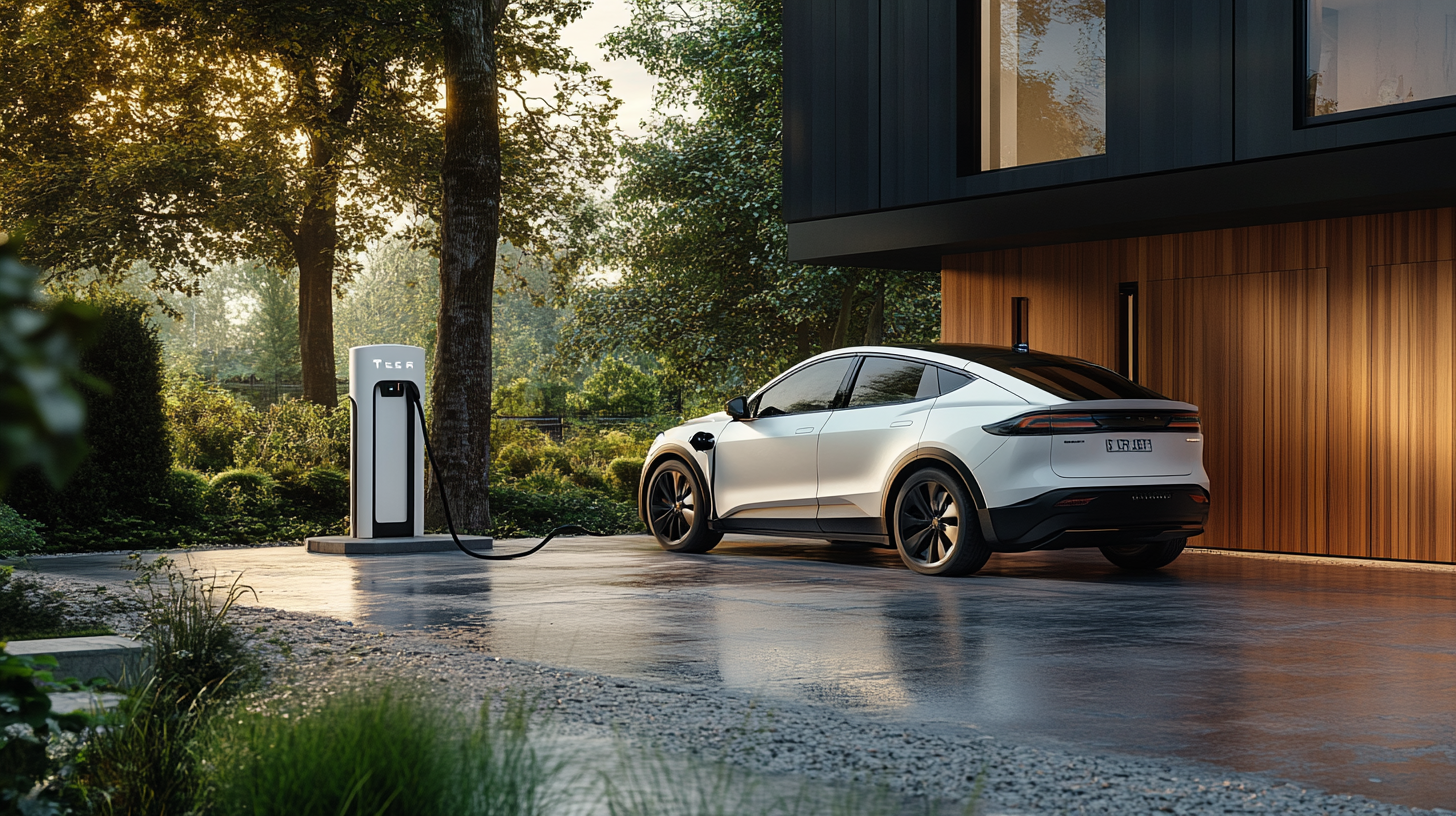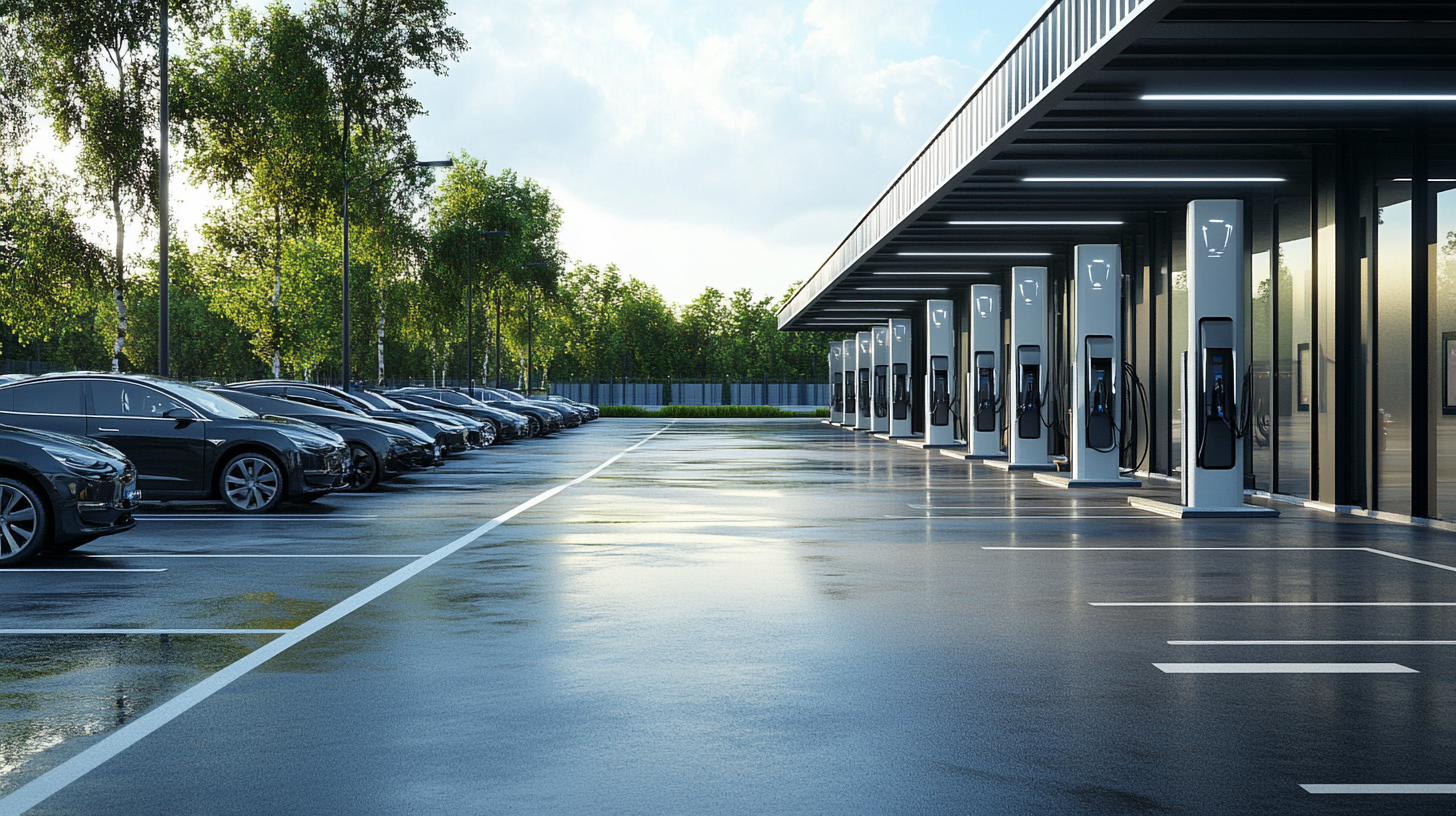In today's rapidly evolving electric vehicle (EV) landscape, the demand for efficient and reliable charging solutions has reached unprecedented heights. Among these, the 22kw DC EV charger has emerged as a preferred choice for both commercial and private entities seeking to enhance their charging infrastructure. However, global buyers face a myriad of challenges when it comes to securing quality products that not only meet international standards but also align with their specific operational requirements. As the market grows increasingly competitive, navigating this complex terrain has become essential for stakeholders aiming to stay ahead.
The quest for high-quality 22kw DC EV chargers is fraught with obstacles ranging from supply chain inconsistencies to varying technological standards across different regions. Buyers are not only tasked with identifying reputable manufacturers but must also contend with fluctuating market prices and the potential for subpar products entering the market. This comprehensive analysis delves into the multifaceted challenges confronting global buyers, shedding light on the crucial factors that must be considered to ensure they procure EV chargers that are not only efficient but also durable and safe, subsequently empowering the transition to a more sustainable future in transportation.

The standardization of 22kW DC EV chargers is a critical issue facing global buyers, significantly influencing their ability to secure quality products. As the electric vehicle (EV) market continues to expand, projected to reach $10.82 billion by 2027, the demand for standardized charging solutions has never been more pressing. The inconsistency in charger designs and functionality across different regions hampers the development of a cohesive global market. Buyers are often faced with varying specifications, leading to confusion and inefficiencies in infrastructure deployment.
Moreover, the necessity for publicly accessible chargers resembles the convenience of traditional refueling stations. To achieve this, there must be a concerted effort towards establishing uniform standards that facilitate integration and compatibility among various manufacturers. Industry experts emphasize that without standardization, the growth of the EV sector will slow, limiting the acceleration of charging station installations and the overall adoption of electric vehicles.
Additionally, as countries like India strive to build their self-reliant charging component ecosystems, focusing on indigenous manufacturing becomes essential. This not only fosters a robust EV infrastructure but also aligns with global standards that reinforce the reliability of products used in real-world conditions. The challenge remains for regulatory bodies and industry players to collaborate effectively, ensuring that the manufacturing of 22kW DC EV chargers meets a unified set of standards to support a thriving and sustainable future for electric mobility.
As the electric vehicle (EV) market continues to expand globally, the demand for high-quality 22kW DC EV chargers is surging. However, regional regulations and compliance requirements pose significant challenges for global buyers in their quest for quality assurance. These regulations can vary dramatically from one region to another, often leading to confusion and misalignment between manufacturers and buyers. For instance, European countries may have stringent safety and environmental standards that differ from those in Asia or North America, complicating the selection process for stakeholders involved in the procurement of these charging systems.
Furthermore, compliance with regional regulations doesn’t just influence the quality of the chargers; it also affects the supply chain and market entry strategies for global buyers. Manufacturers must navigate a complex web of certification processes and testing protocols before their products can be deemed compliant in different markets. This can result in increased costs and longer lead times, causing delays in project timelines and ultimately affecting customer satisfaction. Buyers must be diligent in understanding the implications of these regulations, working closely with suppliers that not only meet but exceed the required compliance standards.
In addition, staying updated with evolving regulations is critical. As governments increasingly prioritize sustainable transportation initiatives, the landscape of compliance is dynamic, with frequent updates to existing laws or introduction of new standards. Buyers must be proactive in engaging with regulatory bodies and industry experts to ensure that they remain fully informed. By fostering relationships with reliable suppliers who prioritize adherence to these regulations, global buyers can mitigate risks and secure high-quality EV chargers that meet both their operational needs and regulatory demands.
The global push for electric vehicle (EV) adoption has surged dramatically, yet the road to securing high-quality 22kW DC EV chargers remains fraught with challenges. A significant factor influencing this situation is the ongoing supply chain disruptions that have emerged in recent years. These disruptions have not only delayed production timelines but have also caused a ripple effect in the availability of necessary components, impeding the deployment of fast chargers that are crucial for the effective charging infrastructure.
Recent reports highlight a growing gap in supplying robust charging solutions, particularly in key markets like the EU and India. The shift towards indigenous manufacturing of vital EV components is critical in mitigating these supply chain issues, as countries strive to build self-reliant ecosystems. By investing in local manufacturing capabilities, nations can enhance the availability of high-quality 22kW DC chargers while ensuring that the components are produced sustainably and efficiently.
Moreover, the disparity between fast and slow chargers, especially in publicly accessible locations, indicates a pressing need for strategic investment in charging infrastructure. Policymakers must prioritize the development of a comprehensive network that can support the increasing number of electric vehicles. This involves not only bolstering the supply chain for EV chargers but also ensuring that high-quality products are readily accessible to meet consumer demand and facilitate a smooth transition to electric mobility.

The rapid advancement of electric vehicle technologies has spurred a significant demand for high-quality 22kW DC EV chargers. As global buyers strive to navigate this evolving market, it becomes imperative to understand the technological advancements that enhance charger reliability and performance. Manufacturers are investing heavily in innovative features, such as smart charging capabilities and improved thermal management systems, which not only optimize charging speed but also prolong the lifespan of the equipment.
One notable advancement is the integration of Internet of Things (IoT) technologies into charging stations. These IoT-enabled chargers allow for real-time monitoring and data collection, providing valuable insights into usage patterns and performance metrics. This data-driven approach not only helps manufacturers to address potential issues proactively but also empowers users to make informed decisions about their charging infrastructure. Furthermore, the deployment of artificial intelligence in analysis and predictive maintenance paves the way for enhanced reliability, ensuring that chargers are always functional and ready for use.
Additionally, research into more sustainable materials and production processes is reshaping the EV charger landscape. As buyers prioritize environmental impact, the shift towards eco-friendly components and practices is essential. This commitment to sustainability is not merely a trend but a response to a pressing demand for greener solutions in the electric mobility sector. By focusing on these innovations, global buyers can secure chargers that not only meet performance requirements but also align with the values of a more sustainable future.
The decision to invest in premium versus standard 22kW DC EV chargers is a pivotal one for global buyers, particularly in the face of rapidly evolving electric vehicle infrastructure demands. Premium chargers often come with advanced features such as faster charging times, enhanced durability, and superior customer support. These benefits can significantly outweigh the higher initial investment, particularly in high-traffic commercial locations where downtime can lead to considerable lost revenue.
On the other hand, standard 22kW DC chargers may appear to be a more economical choice at first glance. They usually have lower upfront costs but may lead to increased maintenance and operational costs over time. For instance, a standard charger may require frequent repairs or replacements, particularly if it is subjected to heavy usage or adverse weather conditions. This raises the total cost of ownership, making the premium options more attractive when long-term viability and reliability are considered.
In addition, the ever-growing consumer expectations for charging speed and availability make investing in high-quality charging solutions crucial for businesses aiming to stay competitive. Enhanced user experience provided by premium chargers can foster customer loyalty and attract more EV drivers, ultimately leading to increased revenue. Therefore, it is essential for global buyers to carefully evaluate not just the purchase price, but also the potential long-term benefits and drawbacks of each option before making a decision.

